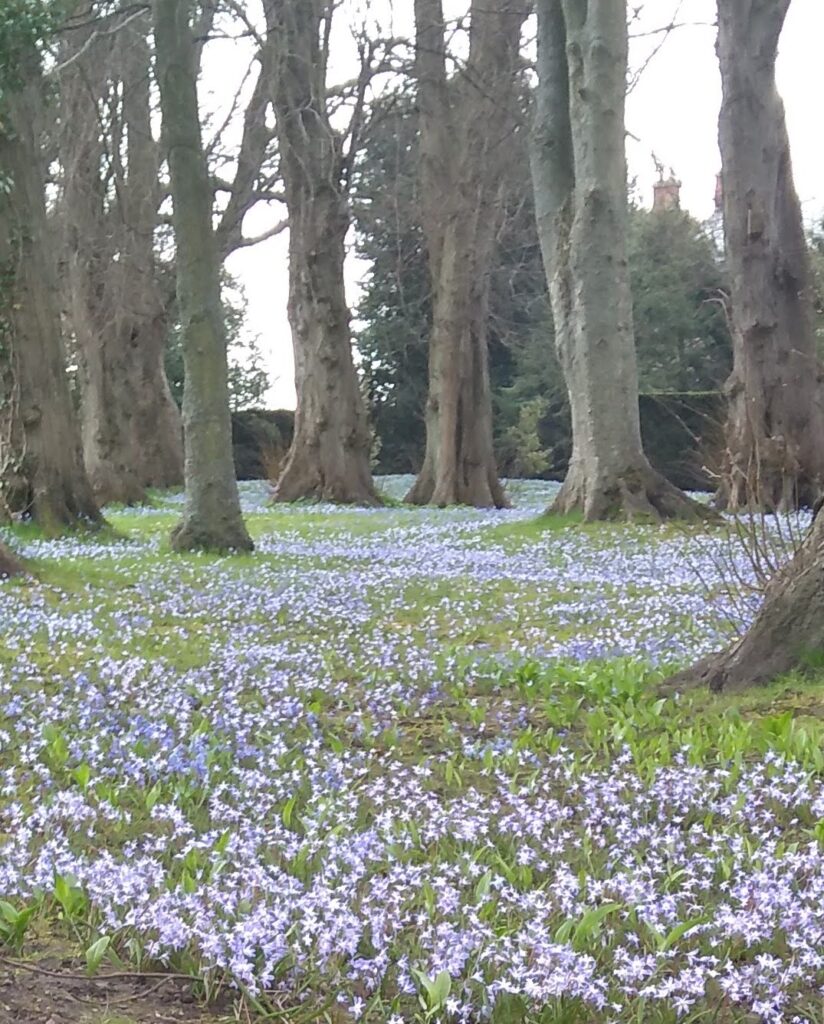I made a mistake. Inner critic is going to town on me. “How could you slip up like that? You need to take a long, hard look at yourself! You call yourself a good Christian woman, and then go and do that! You’re a hypocrite. Everyone will think you are so bad for doing that. You should be ashamed of yourself. You are useless.”
I am drowning in a pool of shame, regret, despondence and depression. I am frozen. I am never going to be good enough. I am supposed to be perfect.
Loving Kindness comes alongside me and gently challenges me. “Would you speak to your friend or your children like that?” she probes. The fog begins to lift as I raise my gaze and take in my surroundings. I feel the ground I am sitting on, and wiggle my toes. I take a deep, slow breath and remember I am no longer a child, who is told to aim for perfection every day, and shamed for failure. I am an adult, aware of my strengths and weaknesses, and with the capacity to learn and grow.
I start to speak back to Inner Critic. “Thank you for protecting me, when I was younger, and needed to be as perfect as possible to avoid being punished and shamed. And now, I am an adult, no longer hanging out with people who speak to me that way, so I don’t need you to speak to me like that any more either. Everyone makes mistakes. I am still an equal human being, worthy of love and respect. I can now take risks, and be vulnerable. I can show up, and when I make a mistake, or I encounter other opinions, I can learn from them, and grow. My world is expanding.”
Inner critic is not finished yet. “But your sins are like filthy rags. You must be holy. Try harder to be pure.”
I sigh. “I know that’s what we were taught. But really, I don’t think the goal of life is to be perfect. And I don’t think being holy is being perfect. I prefer to use the word sacred. All of life is sacred and has intrinsic worth, just as it is, with all its imperfections. I am free to explore, try, experiment and find out. I am free to make mistakes, to own them, and to learn from them. No fear. No shame.”
******
Be Holy! Aim for perfection! Be pure! We are set apart! These were all common exhortations during my religious upbringing. I felt caught in a paradox. I was told the maxims of the faith as Truth I must believe. Indeed, I was told I was privileged to be born into a family where these truths were taught from birth, so all I had to do was accept them to become part of the chosen people, set apart for God and destined for heaven. All I had to do was repent of my sins, and accept Jesus. It was a gift of grace. And then, I had to spend the rest of my life trying to be perfect or holy or pure all the time. Failure resulted in punishment and shame. But I did not need to worry. Entry to heaven was still guaranteed, even if it was by the skin of my teeth.
The idea of holiness as being set apart, or special, chosen people, made me feel I had to know all the answers, without asking any of the questions. I shut down my natural curiosity and did not allow myself to ask difficult questions, because then I risked not belonging. Instead, I was the person who knew The Truth, and needed to evangelise the poor ignorant heathen around me.
The idea that holiness meant moral perfection, made admitting mistakes very difficult. If anyone tried to give me constructive feedback, I felt defensive, and shamed. In this kind of environment, it is easier to hide or cover up mistakes, than to learn from them.
I came to realise that my perfectionism was worrying about what other people thought of me, trying to please them and gain acceptance. When I performed well, I gained the approval of my parents and of God. It became the belief that “I am what I do.” Brene Brown defines perfectionism from her research as, “a self-destructive and addictive belief system that fuels this primary thought: If I look perfect, live perfectly, work perfectly and do everything perfectly, I can avoid or minimise the painful feelings of shame, judgement and blame.”
Perfectionism froze me, because failure meant I felt worthless. It is very hard to be creative, inventive and risk new trying something new, when it not working, or criticism, meant I was a failure as a person.
Both being perfect and also making others perceive us as perfect are impossible. Failure is inevitable. If we believe the resulting shame is because we are not perfect, it becomes a vicious, addictive cycle we go round and round, believing if we can just be more perfect we will feel OK.
Healthy effort and goals in life need to come from within, not be driven by external forces such as how others think of us.
The word holiness has so many unhelpful connotations for me, that I prefer to use the word sacred. I think of all living things as having this inherent worth, of life itself as sacred. Everyone and everything is included and is worthy of love and respect. The beauty of the natural world speaks of goodness, and is to be looked after. Grandeur and intricate detail can inspire awe and wonder. I appreciate other people most when they show up authentically as their true selves, not as “perfect”. And I now give myself the same permission to be vulnerable, to risk making mistakes, to have true curiosity and to encounter the world with an open heart.
Sometimes asking good questions is more valuable than having the answers. Maybe having a welcoming home is more important than having a clean and tidy one. Peeling back the image and revealing more of your true self to others can create real connection and intimacy. Having a try might be more important than the end result. What if it is all about the journey – not the destination?



I find your use of the word sacred really helpful.
Sadly once the dominant voice of childhood makes us strive for perfection we may fail to hear or believe the more gentle and encouraging adults around us, or discount their praise and comments as false.
Thank you Hilary. Yes listening for the gentler voices and receiving them is so life giving.
I like YOUR voice! So much kinder, real and loving than the inner critic! Obviously I should have just said Christ like. It’s funny how we can so easily accept our heavenly fathers voice as critical rather than gently guiding, correcting and being constructive.
So good to read this and try and soak it up x x x
Thank you for your kind words Chris
Self effort to be holy is a killer isn’t it? I never heard a fruit tree groaning with effort to produce fruit. It’s the natural outworking of a life connected to, and rooted and grounded in the earth. We’re to be rooted and grounded in love, allowing the Spirit of God to flow through us like life giving sap. John 15 is my favourite chapter in the bible. It does away with self effort and gives room for His Spirit. His Agape loving Spirit.
Pingback: Poem – Ithaka by C P Cavafy – A journey - returning home to yourself